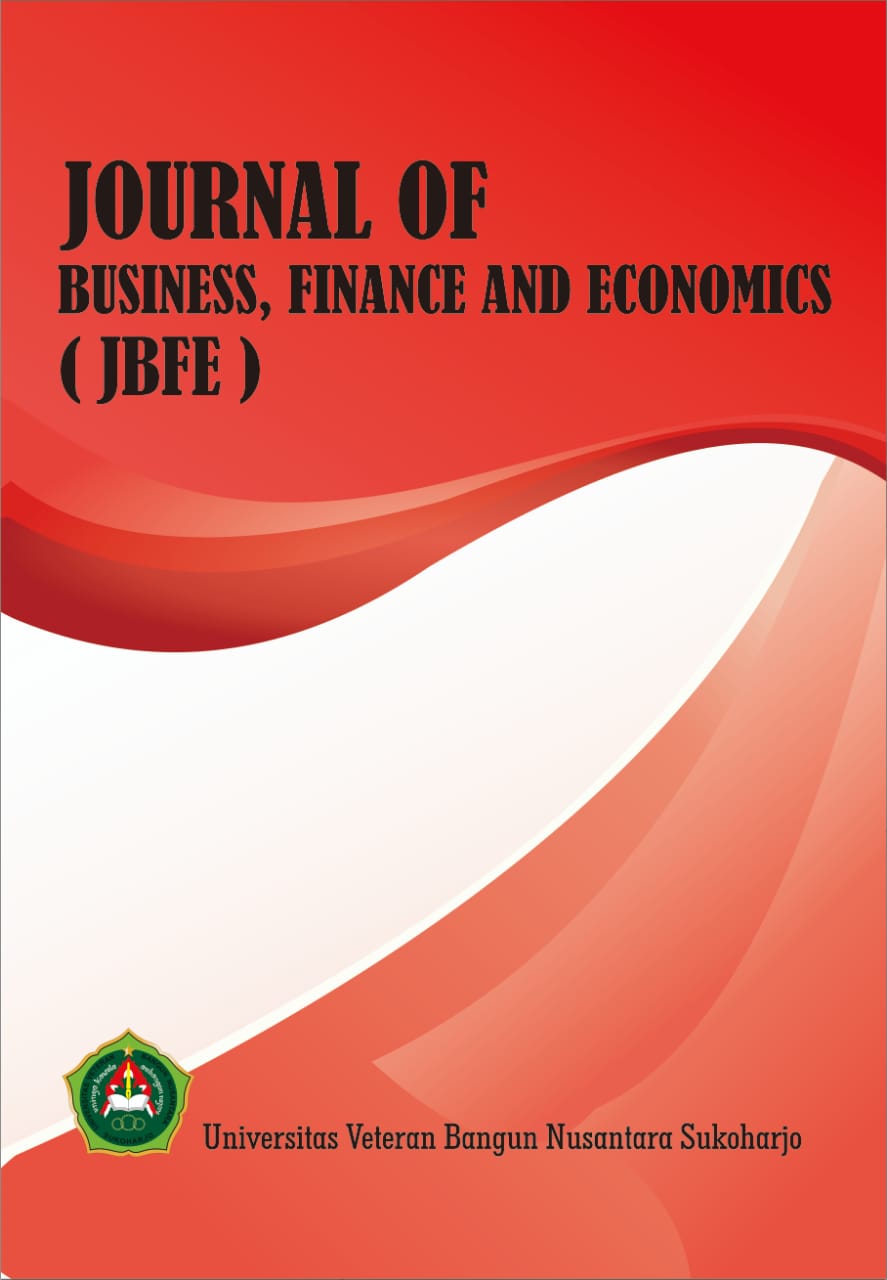Transformasi Nilai Konsumen: Analisis Perkembangan Studi Islam dan Industri Halal di Jepang dalam Perspektif Teori Perilaku Konsumen
An Analysis of the Development of Islamic Studies and the Halal Industry in Japan from the Perspective of Consumer Behavior Theory.
DOI:
https://doi.org/10.32585/jbfe.v6i1.6724Keywords:
Islamic consumer behavior, halal industry, Japan, Islamic studies, consumer valuesAbstract
This study explores the transformation of Muslim consumer values in Japan through the theoretical lens of Islamic consumer behavior, focusing on the development of Islamic studies and the halal industry. As a non-Muslim country experiencing significant growth in the halal market, Japan offers a unique context to understand how Islamic-based values, norms, and consumption preferences are formed and evolve outside Muslim-majority nations. The research adopts a qualitative-descriptive approach, utilizing a literature review and case studies of Japan’s halal industry. Findings reveal slot deposit 5000 that values such as halal, thayyib, ethical consumption, and spirituality form the foundation of Muslim consumer behavior in Japan. Furthermore, academic engagement through Islamic studies in various universities, along with halal certification efforts by local and global bodies, reinforce consumer preferences and trust. The study concludes that the transformation of Muslim consumer values in Japan not only influences individual behavior but also drives structural change within the halal industry ecosystem. These implications are vital for the development of the global halal market and for marketing strategies rooted in Islamic values.
Downloads
References
Alserhan, B. A. (2020). Islamic branding and marketing: Creating a global Islamic business. Routledge. https://doi.org/10.4324/9780429287325
Azmi, A. A., & Mohamed, A. (2021). Understanding halal consumer behavior: A literature review. Journal of Islamic Marketing, 12(1), 30–50. https://doi.org/10.xxxx/jim.2021.001
Huda, M., & Sugimoto, K. (2022). The rise of Islam in Japan: Opportunities and challenges. Asian Journal of Religion and Society, 3(2), 121–140.
Huda, M., & Sugimoto, K. (2022). Islamic consciousness and halal consumer behavior in Japan: A socio-cultural analysis. Asian Journal of Islamic Studies, 14(2), 95–112. https://doi.org/10.32764/ajis.v14i2.308
Japan Halal Association. (2023). Halal market trends in Japan 2023: Opportunities and challenges. Tokyo: JHA Press.
JETRO (Japan External Trade Organization). (2024). Survey on Japan’s halal market and export opportunities 2024. Tokyo: JETRO Publications. https://www.jetro.go.jp/en/reports/halal2024
Kawamura, H., & Huda, M. (2021). Reframing halal certification in Japan: Towards value-based consumer protection. Journal of Islamic Business and Management, 11(1), 55–72. https://doi.org/10.26501/jibm/2021.1101-004
Rafudeen, A. (2021). Muslim minorities and ethical consumption: Observing halal practice in secular societies. International Journal of Islamic Thought, 19(1), 33–48. https://doi.org/10.24035/ijit.19.2021.177
Sugimoto, K., & Huda, M. (2022). The rise of Islam in Japan: Cultural challenges and market responses. Asian Social Science Review, 3(1), 145–160.
Watanabe, Y. (2020). The emergence of halal tourism in Japan: Between consumer demand and national branding. Journal of Tourism Futures, 6(3), 289–301. https://doi.org/10.1108/JTF-08-2019-0078
Yusuf, S. M., & Ghazali, M. (2021). Consumer trust in halal labels: A cross-cultural comparative study. Journal of Islamic Marketing, 12(5), 1012–1028. https://doi.org/10.1108/JIMA-03-2020-0089
Zulkifli, S., & Rahman, A. A. (2023). Halal lifestyle and the emergence of Muslim consumerism in East Asia. Global Halal Review, 5(1), 44–61.
Downloads
Published
How to Cite
Issue
Section
License
Copyright (c) 2025 Journal of Business, Finance, and Economics (JBFE)

This work is licensed under a Creative Commons Attribution-ShareAlike 4.0 International License.
Authors who publish with the Journal Of Business, Finance, and Economics (JBFE) agree to the following terms:
- Authors retain copyright and grant the journal the right of first publication with the work simultaneously licensed under a Creative Commons Attribution License (CC BY-SA 4.0) that allows others to share the work with an acknowledgment of the work's authorship and initial publication in this journal.
- Authors are able to enter into separate, additional contractual arrangements for the non-exclusive distribution of the journal's published version of the work (e.g., post it to an institutional repository or publish it in a book), with an acknowledgment of its initial publication in this journal.
- Authors are permitted and encouraged to post their work online (e.g., in institutional repositories or on their website) prior to and during the submission process, as it can lead to productive exchanges, as well as earlier and greater citation of published work.













